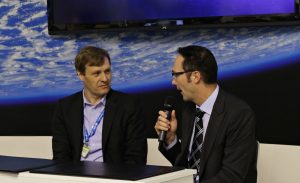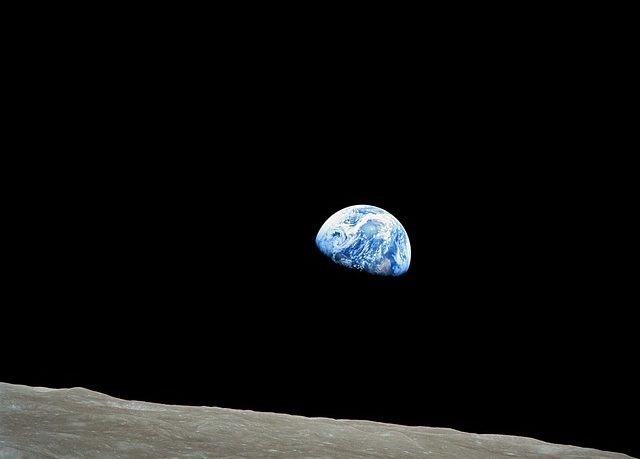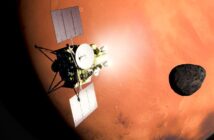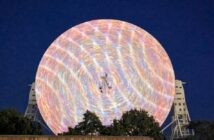A new mini robotic laboratory going to the south pole of the Moon to search for water could “enable a new wave of human exploration of the Moon and beyond” according to Open University scientist Dr Simeon Barber.
The Open University has partnered with leading aerospace company Leonardo-Finmeccanica to develop ProSPA, a miniature robotic laboratory which will analyse samples drilled from up to two metres below the Moon’s surface. The partnership was unveiled at a special signing ceremony at the Farnborough International Airshow.
Dr Simeon Barber, lead scientist on ProSPA at The Open University, explained why the mission was so exciting:
It will be hugely exciting to explore the Moon’s surface in these polar regions, which are expected to be very different to the equatorial areas visited by the Apollo astronauts.
Not only will these new robotic measurements by ProSPA advance our scientific understanding of the Moon, but if we can find and access the water ice we think is frozen there, this will enable a new wave of human exploration of the Moon and beyond into the Solar System.
Inspiring new scientists

Dr Simeon Barber (r) discusses the mission
The new technology is part of an initiative funded by the European Space Agency (ESA) known as PROSPECT (Package for Resource Observations, in-Situ analysis, and Prospecting for Exploration Commercial exploitation and Transportation), for which Leonardo-Finmeccanica is prime contractor and which is scheduled to travel to the Moon on board the Luna-27 Mission, developed by the Russian Space Agency (Roscosmos).
Peter Horrocks, Vice-Chancellor of The Open University, said:
The Open University has long been at the forefront of pioneering space missions, and we are delighted to be contributing our expertise and supporting Leonardo-Finmeccanica and the European Space Agency in this exciting mission.
Moreover, the technology used to perform these experiments on the Moon’s surface builds on the systems and expertise developed at the OU, which allows our students ‘hands on’ access to science, even when studying remotely. We hope this new mission will inspire and train a new generation of scientists and engineers.
Dr Simeon Barber will be talking about the project at The Open University’s next Open Minds talk, alongside a number of other space scientists. The talk takes place on 20 July at the National Museum Cardiff.
Learn more about Moons with our free Open Learn course.
Explore the many Moons of our solar system with our FutureLearn course.



